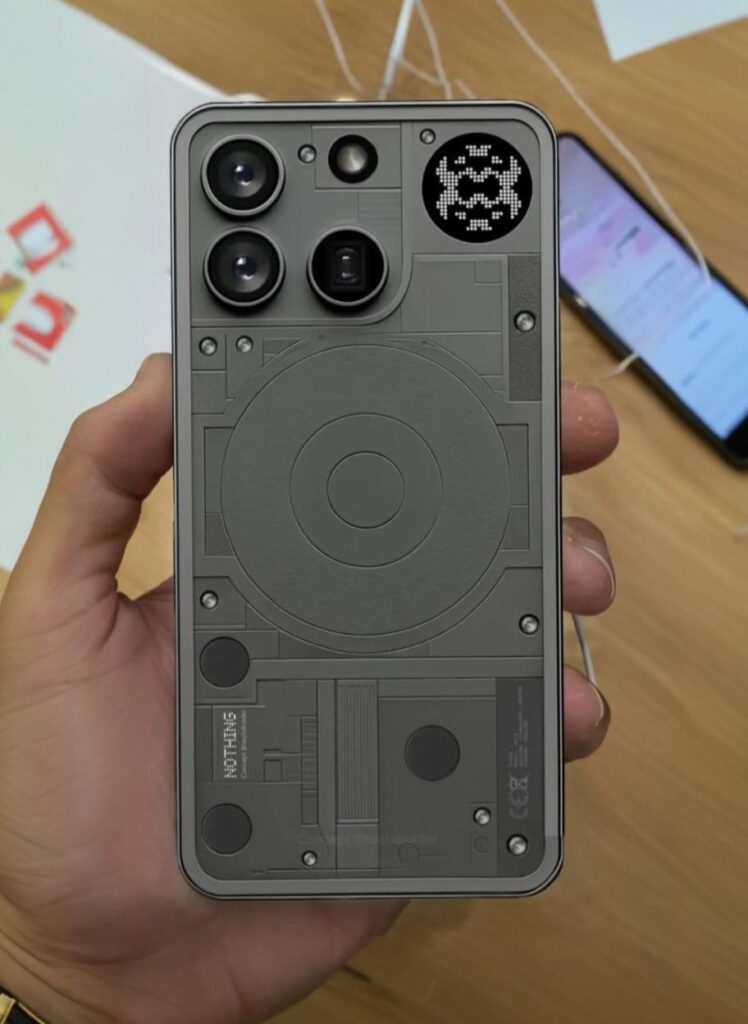Samsung is unable to perform what the Nothing Phone 3 can.
The Nothing Phone 2 was enjoyable to me. I enjoyed that I didn’t have to pay as much, and I wasn’t upset that it wasn’t as powerful as the majority of flagship smartphones at the time. Nothing remained internal, resulting in a phone with a clear user interface and seamless operation. The Nothing Phone 3 is finally coming, but we had to wait a little longer than anticipated for an encore.
It’s cool if the Nothing Phone 3 isn’t for everyone. Since it is not subject to the same constraints as other Android manufacturers, nobody can develop a specialized product with a distinctive design.
Although the company’s goal is to sell a lot of phones, it also enjoys the process, taking The Nothing Phone 3 does what Samsung can’t — and I’m here for it.
I’m sorry to see the Glyph Interface go
I appreciated the visual indication I received when I received a call or notification, but I never configured my Glyph Interface with distinct patterns for each contact. The Glyph Interface appealed to me since I lamented the disappearance of notification LEDs on contemporary smartphones.
Even though the Glyph Matrix is different, I can still quickly access visual information from my phone using it. Unlike with an old-fashioned notification LED, I find it difficult to distinguish notifications from a few feet away, even though I like a well-designed always-on display.
I’m glad that Nothing has incorporated something unique compared to other Android makers, however I’m hoping that the Glyph Matrix can be customized to show identifiable patterns from a distance.
Additionally, Samsung won’t be releasing the Nothing Phone 3 design anytime soon. The Nothing Phone 3 is unique due to its transparent back and unconventional camera positioning.
There must be a middle ground, even though I’ll acknowledge that it’s simpler to take daring design risks when you’re not one of the world’s top-selling Android OEMs. There weren’t many changes from earlier models, and the Samsung Galaxy S25 Ultra’s design was a snoozefest.
Innovation under the hood
The Nothing Phone 3’s 5,150mAh silicon-carbon battery is one of the reasons I anticipate exceptional battery life. There are a lot of reasons why Samsung hasn’t embraced more advanced battery technology, but none of them are convincing.
It’s shocking to me that a business with Samsung’s resources can’t figure out a secure way to incorporate a silicon-carbon battery into its products. Although there have been reports that the Galaxy S26 would have one, I won’t trust it until I see it.
Nothing needs to shoulder the Galaxy Note 7’s burden, allowing the business to provide the newest and best phones.
Yes, the Galaxy S25 Ultra’s 5,000mAh lithium-ion battery does have a longer lifespan than its predecessor, but my OnePlus 13, which uses silicon-carbon technology, lasts me two full days.
I anticipate using the Nothing Phone 3 for two days on a single charge if the Snapdragon 8s Gen 4 is as battery-efficient as the chipset from the previous year.
Doesn’t have to be the most powerful phone
Nothing knows that a Snapdragon 8 Elite chipset is not necessary to create a phone that offers a flagship experience. Regarding the Google Pixel lineup, I have argued the same thing. A flagship phone must have raw performance, although we frequently greatly overestimate our power requirements.
I don’t use my phone to edit pictures or movies, and I haven’t come across any mobile games that require the processing capability of a Snapdragon 8 Elite. Look for a gadget like the Samsung Galaxy S25 Ultra if you’ve found a use for all that extra power.
But for the rest of us, I’ll use the money I save buying the Nothing Phone 3 to buy well-made software for just $800. a unique piece of hardware, and snappy, high-end performance.
I hope Nothing isn’t the only one
Instead of fewer businesses like Nothing, we need more. We only notice the stark contrast to a mediocre handset like the Galaxy S25 Ultra when we obtain gadgets like the Nothing Phone 3.
Indeed, there are commercial considerations that keep Samsung from taking too many risks, but I don’t think there aren’t some opportunities for audacity. I’m eager to try the Nothing Phone 3, which does what Samsung is unable to.

